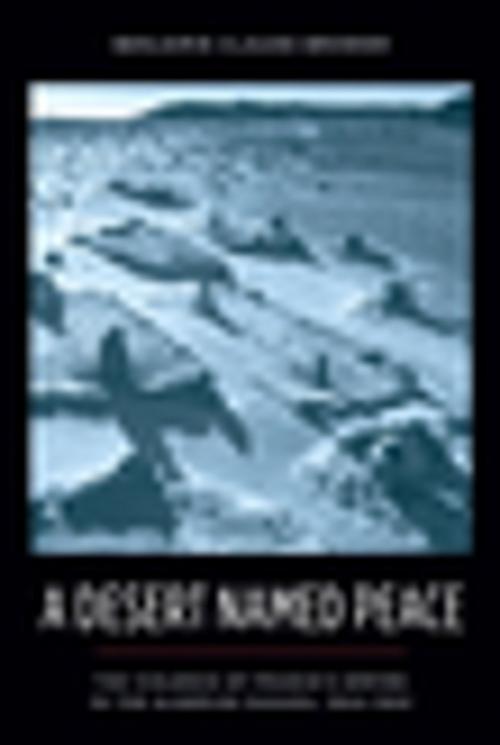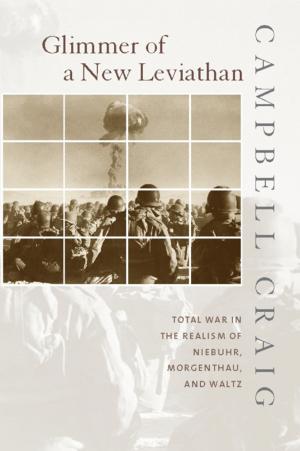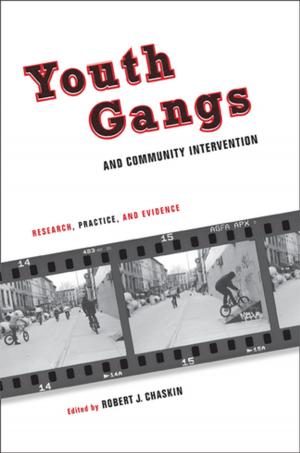A Desert Named Peace
The Violence of France's Empire in the Algerian Sahara, 1844-1902
Nonfiction, History, France, Middle East| Author: | Benjamin Brower | ISBN: | 9780231519373 |
| Publisher: | Columbia University Press | Publication: | July 7, 2009 |
| Imprint: | Columbia University Press | Language: | English |
| Author: | Benjamin Brower |
| ISBN: | 9780231519373 |
| Publisher: | Columbia University Press |
| Publication: | July 7, 2009 |
| Imprint: | Columbia University Press |
| Language: | English |
In the mid-nineteenth century, French colonial leaders in Algeria started southward into the Sahara, beginning a fifty-year period of violence. Lying in the shadow of the colonization of northern Algeria, which claimed the lives of over a million people, French empire in the Sahara sought power through physical force as it had elsewhere; yet violence in the Algerian Sahara followed a more complicated logic than the old argument that it was simply a way to get empire on the cheap**.**
A Desert Named Peace examines colonial violence through multiple stories and across several fields of research. It presents four cases: the military conquests of the French army in the oases and officers' predisposition to use extreme violence in colonial conflicts; a spontaneous nighttime attack made by Algerian pastoralists on a French village, as notable for its brutality as for its obscure causes; the violence of indigenous forms of slavery and the colonial accommodations that preserved it during the era of abolition; and the struggles of French Romantics whose debates about art and politics arrived from Paris with disastrous consequences.
Benjamin Claude Brower uses these different perspectives to reveal the unexpected causes of colonial violence, such as France's troubled revolutionary past and its influence on the military's institutional culture, the aesthetics of the sublime and its impact on colonial thinking, the ecological crises suffered by Saharan pastoralists under colonial rule, and the conflicting paths to authority inherent in Algerian Sufism. Directly engaging a controversial history, A Desert Named Peace offers an important backdrop to understanding the Algerian war for independence (1954-1962) and Algeria's ongoing internal war, begun in 1992, between the government and armed groups that claim to fight for an Islamist revolution.
In the mid-nineteenth century, French colonial leaders in Algeria started southward into the Sahara, beginning a fifty-year period of violence. Lying in the shadow of the colonization of northern Algeria, which claimed the lives of over a million people, French empire in the Sahara sought power through physical force as it had elsewhere; yet violence in the Algerian Sahara followed a more complicated logic than the old argument that it was simply a way to get empire on the cheap**.**
A Desert Named Peace examines colonial violence through multiple stories and across several fields of research. It presents four cases: the military conquests of the French army in the oases and officers' predisposition to use extreme violence in colonial conflicts; a spontaneous nighttime attack made by Algerian pastoralists on a French village, as notable for its brutality as for its obscure causes; the violence of indigenous forms of slavery and the colonial accommodations that preserved it during the era of abolition; and the struggles of French Romantics whose debates about art and politics arrived from Paris with disastrous consequences.
Benjamin Claude Brower uses these different perspectives to reveal the unexpected causes of colonial violence, such as France's troubled revolutionary past and its influence on the military's institutional culture, the aesthetics of the sublime and its impact on colonial thinking, the ecological crises suffered by Saharan pastoralists under colonial rule, and the conflicting paths to authority inherent in Algerian Sufism. Directly engaging a controversial history, A Desert Named Peace offers an important backdrop to understanding the Algerian war for independence (1954-1962) and Algeria's ongoing internal war, begun in 1992, between the government and armed groups that claim to fight for an Islamist revolution.















